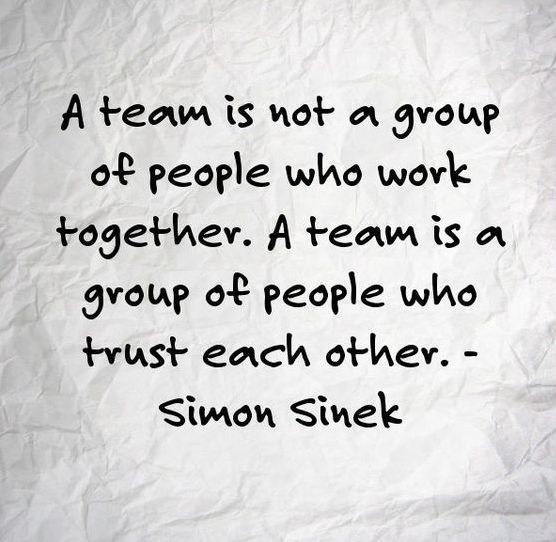Building trust in your team
Have you ever worked in a team that doesn’t trust each other? A team without trust isn’t really a team. It’s just a group of individuals who work together. It means you will never be as effective or able to produce as much as a team that has trust.
When there is trust each individual in the team becomes stronger, because he or she is part of a collective. A team that trusts each other collaborates more, is more productive and willing to go further to deliver together. In short, they stop acting as individuals and start operating as a cohesive group.

I think this is such an interesting topic because it is so hard to define and can be different in every team. It is a quality we all need in our teams, but it is something people find hard to quantify. It’s hard to describe what trust looks like in a team. I know some of the best teams I worked in I trusted them implicitly and they trusted me. But it grew organically, and it took time. Here are some of the things that worked for me.
Lead by example
If you want to be able to trust your team then you need to lead by example and trust them. I always started with the premise that I will completely trust my staff until they break that trust and then it will take you a long time to rebuild it. I made that clear for every one of my staff that started working for me.
Demonstrating trust as a leader means:
- Doing what you say you will do.
- Being approachable and friendly.
- Showing support for your team members privately and publicly.
- Be understanding that people have lives outside of work, life happens, mistakes are made – as a leader you need to demonstrate empathy for your people.
- Be respectful of other ideas and perspectives – even if you think you know the answer be willing to listen.
Get to know each other
One way to build trust amongst your team is to encourage staff to see their colleagues as people. People that know each other, and care for each other are more likely to trust each other. Create social situations where people can share stories, talk about their weekend, be willing to open up. You will be surprised by how much this can shift a team dynamic. Ultimately people trust people they like.
Fail safely
This is such a cliché. It is a phrase that is bandied around too much these days. But this is how you build trust in a team. People make mistakes and they can disappoint you. They are human. It’s easy to blame the person who is at fault. However, when everyone starts pointing fingers, rather than supporting the person to fix the problem (and then reflecting on how not to do it again) it diminishes trust. When staff constantly blame each other for failures an unpleasant atmosphere can quickly develop. You need to create an atmosphere where your staff support each other rather than blame.
Have a clear purpose
It is important to have a clear direction or purpose that you are all working towards. Your common goal will help bind you. It could be a team purpose statement, it could be a big project, but the key is identifying that goal together, communicating it openly to everyone and keeping people focused on achieving it. What does this have to do with trust you say? When everyone is headed in the same direction and have something, they are working towards it builds camaraderie, it creates a sense of “team”. It also gives you something to celebrate at the other end.
That’s it?
There are heaps of other things that help build trust in a team – showing you care for people, showing you are engaged in their work, communicating, the list goes on and on. There is not silver bullet (sorry) it’s about your mindset as a manager and how you bring people with you. It’s the culture you build and the environment your people work in.
Trust is definitely not something that can be created overnight. It’s a long game and some staff will just never get on the train. Others will resist with all of their might. By it is worth the time and the effort (it will take effort) because in the end your team will be better for it.

